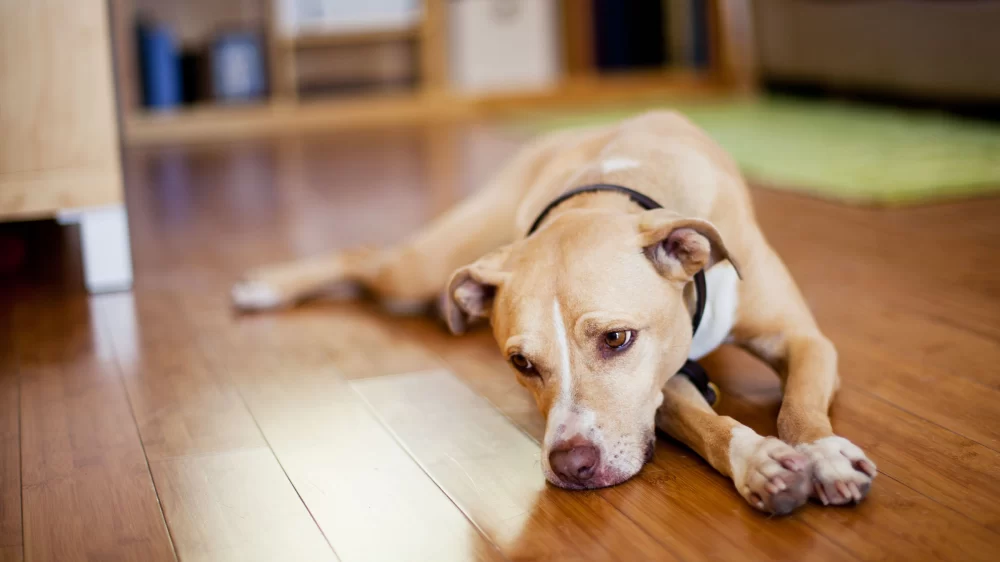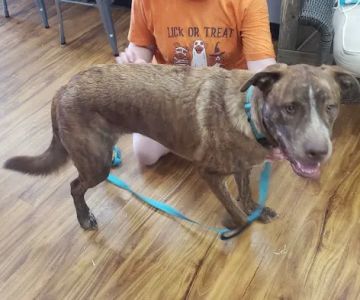Understanding Dog Depression: How to Tell if Your Dog is Feeling Down
As a pet owner, it’s heartbreaking to see your dog in distress. We know that dogs can suffer from physical ailments, but did you know they can also experience emotional turmoil? Just like humans, dogs are capable of feeling sadness, and in some cases, they can even experience depression. If you’ve noticed changes in your dog’s behavior and are concerned they may be depressed, you're not alone. I’ve been there too, and in this article, I’ll help you understand the signs of depression in dogs and what you can do to help your furry friend feel better.
What Causes Depression in Dogs?
Before diving into the signs of depression, it’s important to understand why it happens. Just like us, dogs can be affected by changes in their environment or routine that may cause emotional distress. A few common triggers include:
- Loss of a companion: Dogs form strong bonds with other pets or people, and the loss of a friend (whether animal or human) can lead to emotional grief and depression.
- Changes in routine: Dogs thrive on routine, and any disruption, such as moving to a new home or a change in their daily schedule, can trigger anxiety and sadness.
- Lack of stimulation: Dogs need physical and mental stimulation. A lack of exercise, playtime, or engagement can leave your dog feeling bored and down.
- Health issues: Chronic pain or illness can cause depression in dogs. If your dog is dealing with a health problem, they may withdraw or become less active.
- Trauma or abuse: If your dog has been mistreated or experienced a traumatic event, it can lead to long-lasting emotional scars and depression.
Recognizing the Signs of Depression in Dogs
As a dog owner, it’s crucial to pay attention to changes in your dog’s behavior. Dogs can’t verbally express their emotions, so recognizing the signs of depression is essential to ensure they get the help they need. Below are some common signs of depression in dogs:
1. Changes in Appetite
One of the first signs that something is wrong with your dog is a noticeable change in their appetite. If your dog suddenly stops eating or has a decreased interest in food, it could be a sign of depression. Conversely, some dogs may overeat or become more food-driven when they're feeling down, using food as a way to self-soothe.
2. Decreased Energy and Activity
Has your dog suddenly become lethargic? Dogs that are depressed often show a lack of energy, spending more time sleeping and less time playing or interacting. If your normally energetic dog no longer enjoys walks or doesn’t want to engage in play, depression could be the cause.
3. Increased Aggression or Irritability
Depressed dogs may exhibit unusual aggression or irritability, especially if they’re in pain or frustrated. If your dog starts growling or snapping at people or other pets when they previously showed no signs of aggression, it’s a sign that something may be wrong emotionally.
4. Excessive Licking or Grooming
Some dogs turn to excessive licking or grooming as a coping mechanism when they’re feeling depressed. If you notice that your dog is constantly licking their paws, face, or other parts of their body, this behavior may be linked to stress and emotional discomfort.
5. Withdrawal from Social Interaction
Dogs are social creatures that thrive on interaction with their human family members and other pets. If your dog suddenly starts isolating themselves and seems disinterested in being around you or your other pets, depression may be the cause. They may also seem less affectionate than usual, avoiding cuddles or attention.
6. Changes in Sleeping Patterns
Depressed dogs may sleep more than usual or, in some cases, have difficulty sleeping at all. If your dog is spending an excessive amount of time lying around or seems restless at night, it could be an indication of emotional distress.
7. Lack of Interest in Previously Enjoyed Activities
Has your dog suddenly lost interest in activities they once loved? Whether it’s going for a walk, playing fetch, or interacting with their favorite toy, a lack of enthusiasm for past activities can be a clear sign of depression.
What Can You Do to Help Your Depressed Dog?
If your dog is showing signs of depression, don’t panic. There are several steps you can take to help your furry friend feel better and get back to their usual self.
1. Give Them More Attention
Depressed dogs often crave attention and affection. Spend quality time with your dog, whether it’s through cuddling, playing, or simply sitting with them. The extra attention can provide comfort and help alleviate their feelings of sadness.
2. Establish a Routine
Dogs feel secure when they have a consistent routine. Try to maintain a regular schedule for feeding, exercise, and playtime. A predictable routine can help reduce anxiety and provide your dog with a sense of stability.
3. Exercise and Mental Stimulation
Physical exercise is crucial for a dog’s mental and emotional well-being. Try to take your dog for regular walks, and if possible, engage in activities that stimulate their mind, such as puzzle toys or obedience training. This can help lift their mood and keep them from feeling bored or isolated.
4. Check for Underlying Health Issues
It’s essential to rule out any underlying health problems that might be contributing to your dog’s depression. If your dog’s behavior change is sudden and severe, visit your veterinarian for a thorough examination. Conditions like arthritis, chronic pain, or hormonal imbalances can cause depression-like symptoms in dogs.
5. Consider Professional Help
If your dog’s depression persists, consider consulting a professional. A dog behaviorist or veterinary specialist can work with you to develop a tailored treatment plan for your dog. In some cases, medication may be necessary to help your dog cope with emotional distress.
Depression in dogs is a real issue, but with the right care and attention, most dogs can overcome it. By recognizing the signs early and taking proactive steps, you can help your dog recover and return to their happy, healthy self.












